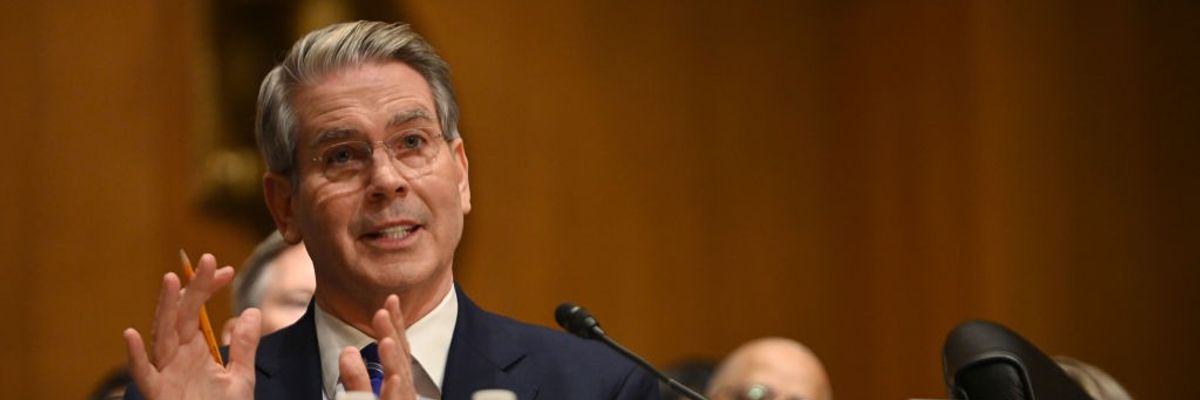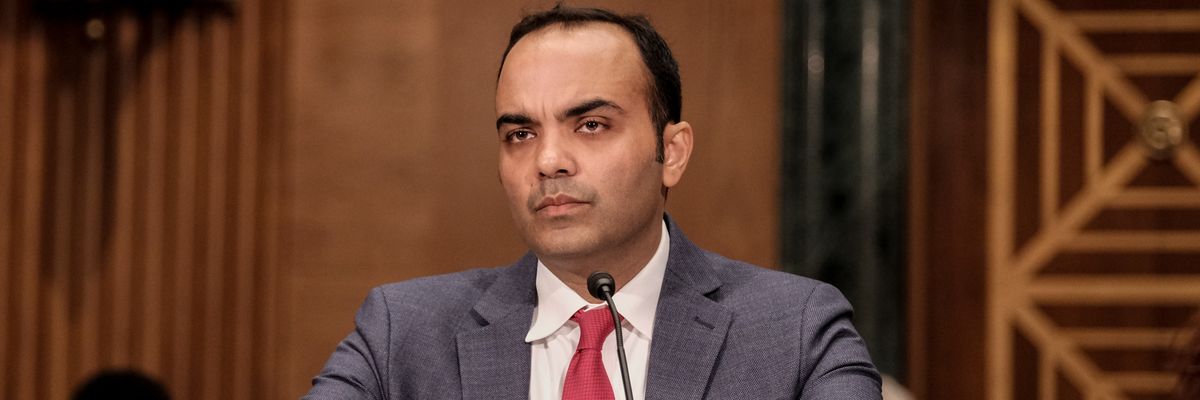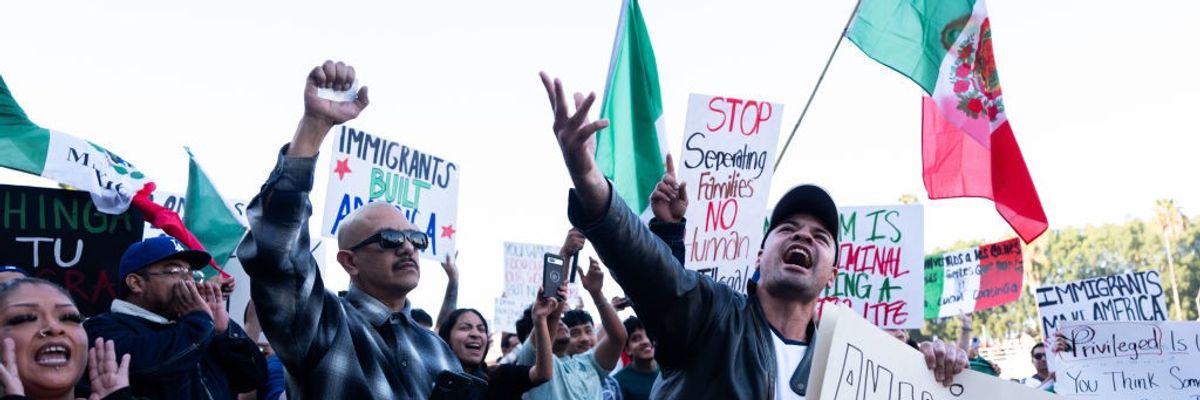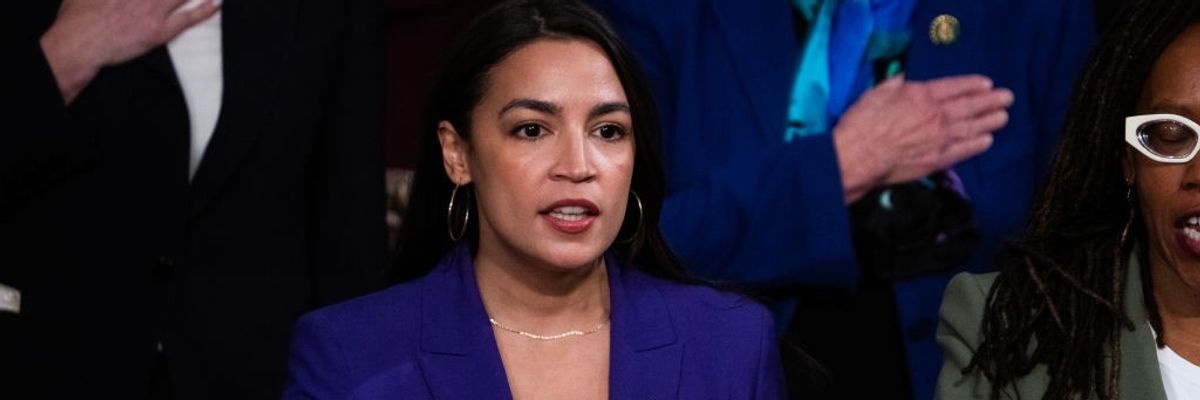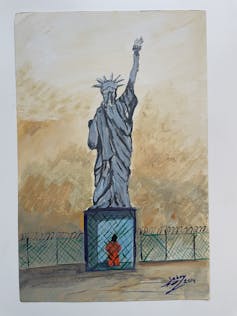One group leader called Treasury Secretary Scott Bessent's decision "a blatant attack on democracy that will harm working people."
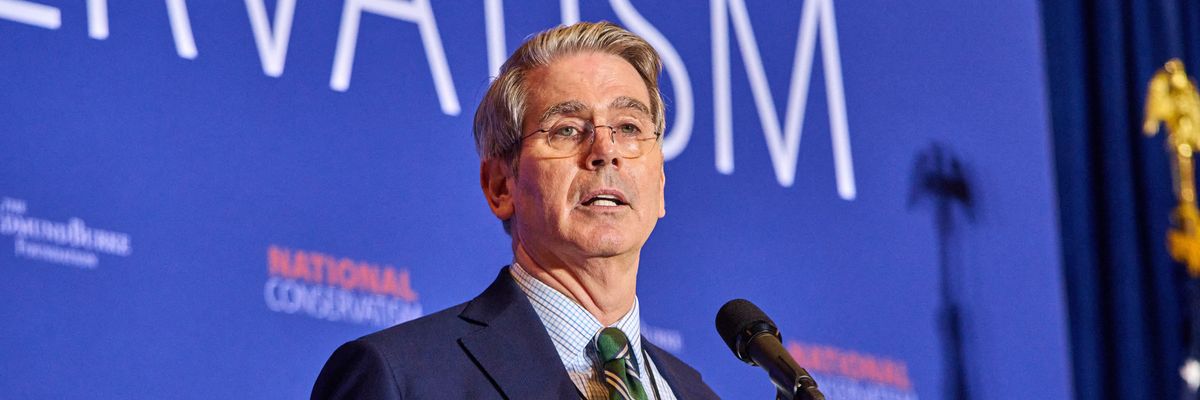
Scott Bessent speaks at the National Conservative Conference in Washington, D.C. on July 10, 2024.
(Photo: Dominic Gwinn/Middle East Images/Middle East Images/AFP via Getty Images)
Eloise Goldsmith
Feb 03, 2025
COMMON DREAMS
The watchdog group Revolving Door Project said Monday that U.S. Treasury Secretary Scott Bessent should be impeached for his role in allowing representatives from the so-called Department of Government Efficiency access to a payment system that holds data on millions of Americans and disperses trillions in public funds.
On Friday, Bessent gave representatives from DOGE, the Elon Musk-led entity within U.S. President Donald Trump's administration focused on cutting costs and bureaucracy, access to the federal payment system, following a standoff between Musk's lieutenants and a separate Treasury official who had sought to prevent DOGE from obtaining access.
"Treasury Secretary Scott Bessent's decision to hand the unelected Elon Musk and his covert, unaccountable DOGE wrecking crew the keys to the federal money spigot is a blatant attack on democracy that will harm working people. Bessent should be impeached immediately for privatizing powers which represent a public trust," said Jeff Hauser, head of the Revolving Door Project, in a Monday statement.
The system that DOGE representatives have been given access to holds the personal information of millions of Americans who receive tax refunds, Social Security checks, and other payments from the federal government.
"He, along with Donald Trump and the 68 members of Congress who acceded to the confirmation of such a lackey, will own each and every one of the dangerous consequences that will flow from this act," Hauser added.
The nonprofit Free Speech for People has launched a campaign to drum up support for the impeaching U.S. President Donald Trump—who was twice impeached during his first term—but the call to impeach Bessent appears to be a first.
Bessent, a billionaire hedge fund manager who clinched his role as treasury secretary with the help of 16 Democrats, was also tapped by Trump on Monday to serve as acting director of the Consumer Financial Protection Bureau, an agency that has long been in the crosshairs of EMusk, Republican lawmakers, and corporate America.
Meanwhile, Congressional Progressive Caucus Chair Rep. Greg Casar (D-Texas) also released a strongly worded statement about DOGE gaining access to the Treasury Department payment system.
"Donald Trump has given unprecedented power over the federal government to an unelected, unaccountable billionaire. Elon Musk's Treasury raid jeopardizes Americans' sensitive information, tax returns, and Medicare and Social Security," he said on Monday.
"Progressives will fight this in the courts, on the House floor, and with every tool at our disposal until Elon Musk is out of our government and no longer putting taxpayers, the sick, and the elderly at risk," he added.
